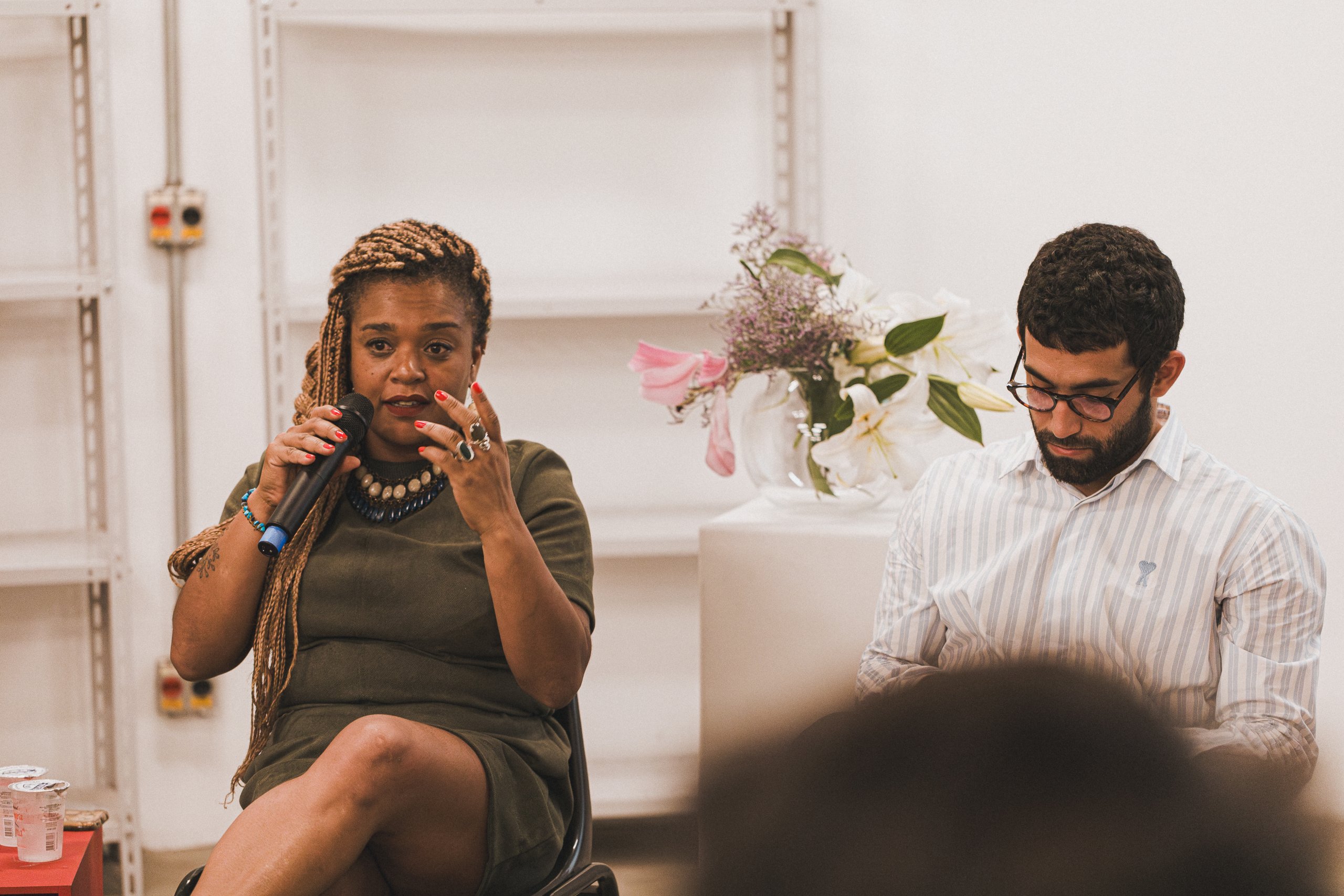Independent Spaces
October 12, 2023
Production, São Paulo
October 12, 2023
Production, São Paulo

SÃO PAULO | On October 12 2023, OtherNetwork hosted an event at PIVÔ, an experimental art space in one of the city’s most iconic modernist buildings, designed by Oscar Niemeyer. The event tackled themes of independence and cultural sustainability in a Brazilian context through a conversation between representatives from three different cultural projects.
The discussion was moderated by Matheus dos Reis (OtherNetwork Researcher), featuring Jaqueline Santiago (Director of PIVÔ), Benjamin Seroussi (Curator and Cultural Manager at Casa do Povo) and Cássia Tabatini (founder of Fort Magazine). The panellists each shared their personal journeys within the independent cultural scene, rooting the discussion in their own past expertise and knowledge.
Each representative gave further context to their own projects. For PIVÔ, a sense of space is a central tenet of how they operate. After ten years operating in São Paulo, this year they have extended their operations to Salvador, Bahia, through the acquisition of Boulevard Suiço. This important new chapter in their history builds on a venue with its own unique history, having been built as a house for artist Presciliano Silva, modelled after Paul Cezane’s studio in France. The home has been a centre of Bahian artistic community since the 1930s. The event also discussed ten years of FORT Magazine documenting youth culture, and the significance of creating a platform for new image-makers that do not necessarily fit within current market trends. For Casa do Povo, an important point of reference for the space is the neighbourhood it sits within, which has received at least five waves of immigrants historically – Casa do Povo itself was founded by the local Jewish community in 1946, the wake of the Shoah. Its current director Benjamin explained how in their programming they have worked with both Palestinian and Israeli artists, and reflected on the site’s cultural context as a starting point of their political thinking: “Jewish identity is heterogeneous, always crossed by others. To make a definition of a Jewish House made to receive others – there’s no Jewish House without diversity.”
As well as specific insights, the panellists also generally dissected the concept of independence in Brazilian art context, scrutinising what it entails for cultural practitioners to identify as ‘independent’. Panellists deliberated on the challenges of maintaining cultural autonomy, questioning the forces from which independence must be upheld. There was an understanding of the relationship to government incentives and laws, and the realities of creating a circle of sponsors to maintain an institution’s programming annually.